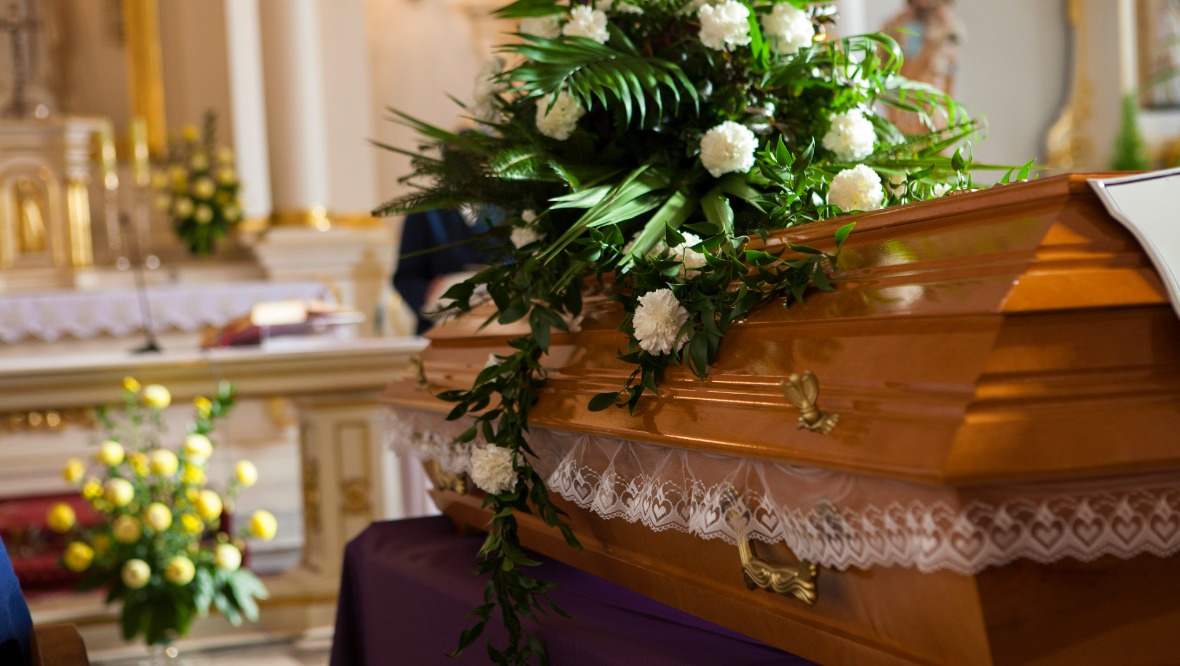A charity is calling on the Scottish Government to reconsider financial support as a report found the cost of funerals is at a record high.
Caledonia Funeral Aid, a social enterprise which supports those facing funeral poverty, is urging for payouts to eligible residents in Scotland to be reconsidered after a recent report.
A cost of dying report from Sunlife found that the average cost of a funeral in Scotland has risen to around £4,030 without including bills for a wake or other send-offs.
The average payout, according to Funeral Support Payment figures from September 2023, is around £1,949 for those eligible in Scotland.
Yet the average cost of dying reached a record high of £9,658, according to Sunlife’s figures.
The charity say the payments are a “drop in the ocean” compared to the full bill for services and say those in receipt of benefits such as Income Support are experiencing “additional financial pressure”.
John Halliday, co-founder and chair of CFA, said: “Since its introduction in 2019, the Scottish Government has made real gains in increasing the take-up of the Funeral Support Payment – which can be used towards burial or cremation costs and other expenses like funeral director’s fees, a coffin or flowers.
“The Funeral Support Payment has become a drop in the ocean for people when presented with the final bill.
“We would ask the Government to consider that those who qualify for the payment are in receipt of benefits like Child Tax Credit, Universal Credit, Income Support or Jobseekers’ Allowance.
“These people are also experiencing additional financial pressure due to the cost of living crisis.
“Indeed, nearly half of those surveyed in the report people say the cost of living crisis impacted on how they organised or paid for the funeral and worryingly 16% said they had to cut back on essential items like food or pay essential bills or rent.
“So, many of those in receipt of the Funeral Support Payment will still struggle to pay the final bill and may resort to desperate measures, like using a credit card, taking out a loan or even selling belongings.
“Our not-for-profit funeral director – Caledonia Cremation – does provide a direct cremation option which is fully covered by the benefit, with money left over for a follow-up event.
“However, that type of funeral isn’t what some people want, and we do our best to support everyone to make the choice that is right for them. It is becoming increasingly hard to do so when the cost keeps rising.”

The charity provided the case study of James, who lost his partner Rachelle in 2022, who was in receipt of Universal Credit and eligible for the Funeral Support Payment.
He said: “Rochelle had contributed to a plan, so as a result I only received 99p from Social Security Scotland.
“The plan and that payment didn’t come close to covering the full cost of the funeral, and as a result I had to find £2,500.
“The payment doesn’t consider the true cost of a typical funeral, which is high by anyone’s standards.
“I also feel that the Government should consider the situation of those who are in receipt of the benefit. When you are on Universal Credit, £2,500 is a huge amount of money.”
The charity are hosting a free online summit at the end of the month and urging people experiencing hardship after being recently bereaved to sign up online at the funerals.scot website.
Social justice secretary Shirley-Anne Somerville said: “Since the Funeral Support Payment was launched in 2019, the Scottish Government has provided over £41m of support to more than 22,000 bereaved people to help pay for funeral costs at a time when they need it most.
“We are committed to tackling funeral poverty, which is why we substantially widened eligibility compared to the UK Government’s funeral payment, and why from April 2024, subject to Parliamentary approval, provision will be increased by 6.7%, in line with inflation.”
Follow STV News on WhatsApp
Scan the QR code on your mobile device for all the latest news from around the country


 iStock
iStock


























